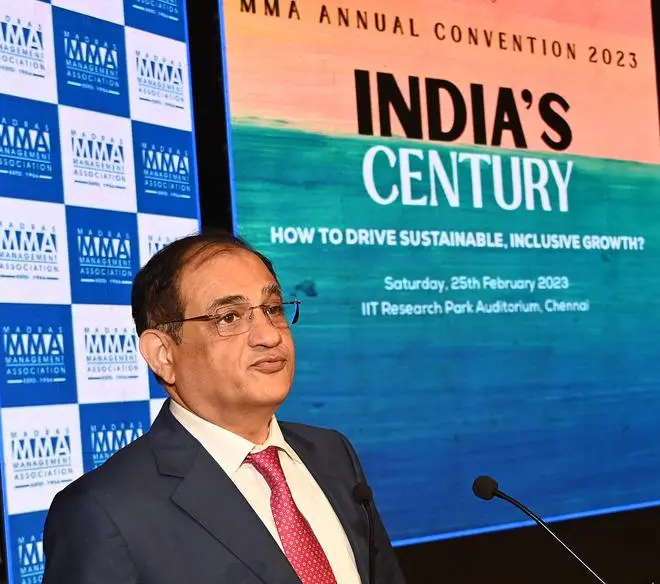Certain sections of automotive MSMEs such as the foundry units in Tamil Nadu are at a risk as the transition from ICE (Internal combustion engine) vehicles to electric vehicles may pose a threat to their survival, pointed out Ulka Kelkar, Director-Climate, World Resources Institute.
“In this transition to EVs, demand for ferrous casting will go down and demand for aluminium casting will increase significantly. There are hundreds of MSME units in the ferrous castings business in Tamil Nadu. For example, in the Coimbatore cluster where we are working, of the 700-odd foundry units, about 500 are ferrous units. These units need special attention and they have to go nimble or diversify into other product segments, she said while addressing a session on “sustainable growth with energy independence’ at the MMA Annual Convention 2023 with the theme “How to drive sustainable, inclusive growth.”
According to estimates, ICEs in automobiles contain about 2,000 moving parts, while EVs will have about 20 parts. Hence it is expected that growth of EVs may pose a big threat to forging and casting industries, where MSMEs are in dominant numbers.
Earlier, discussing the energy and emission goals, Kelkar stated that if the current scenario, business as usual, continued in the energy sector, emissions in the energy sector in the country will flatten out in the coming decades, mainly driven by an increasing share of renewables. “As our current electricity system sees more renewables coming in, we see emissions from the energy sector flattening out even in this decade itself,” she added.

HK Agarwal, MD, Grasim Industries Ltd at the valedictory session of MMA Annual Convention 2023, in Chennai on Saturday
However, emissions in the industrial sector may not see such a scenario and need action plans aligned with India’s net-zero objectives, she said. “Unless the use of coal is phased out gradually, emissions may not come down in the industrial sector. We need actions to happen in every sector. There is no single silver bullet,” she added.
Currently, India is reported to be emitting 2-3 billion tonnes of CO2 a year and it is projected to increase to 6 billion tonnes in 30 years depending upon on country’s growth aspirations. The world, as a whole, emits about 50 billion tonnes.
HK Agarwal, Managing Director, Grasim Industries Ltd and Business Director-Pulp & Fibre, Aditya Birla Group said three broad principles could help the companies achieve sustainable and inclusive growth. They include broadening perspectives of stakeholders and the economy, thinking long-term rather than being preoccupied with the short-term, and looking at imperatives as opportunities. “There have been studies to show that companies that focus on ESG in the right way perform better in financial terms as well over a period of time,” he added.





Comments
Comments have to be in English, and in full sentences. They cannot be abusive or personal. Please abide by our community guidelines for posting your comments.
We have migrated to a new commenting platform. If you are already a registered user of TheHindu Businessline and logged in, you may continue to engage with our articles. If you do not have an account please register and login to post comments. Users can access their older comments by logging into their accounts on Vuukle.